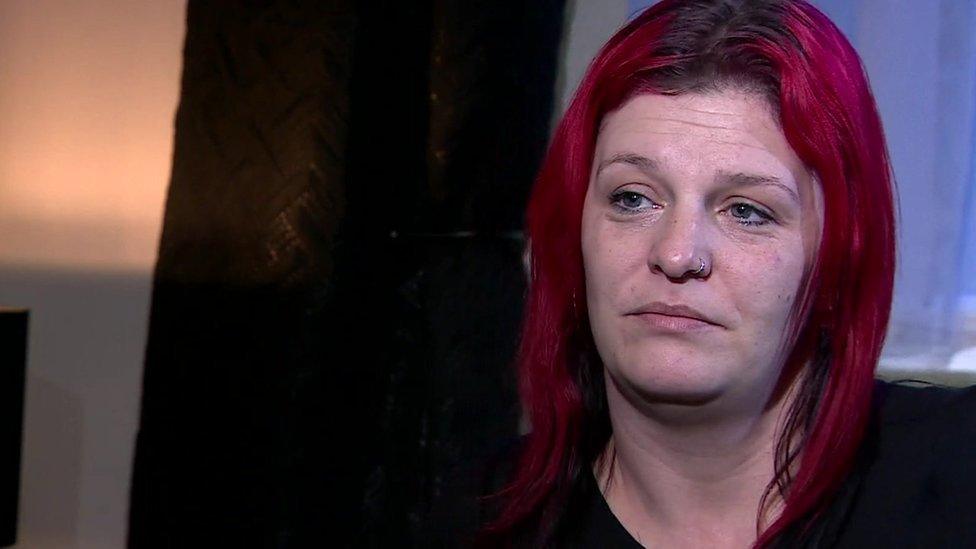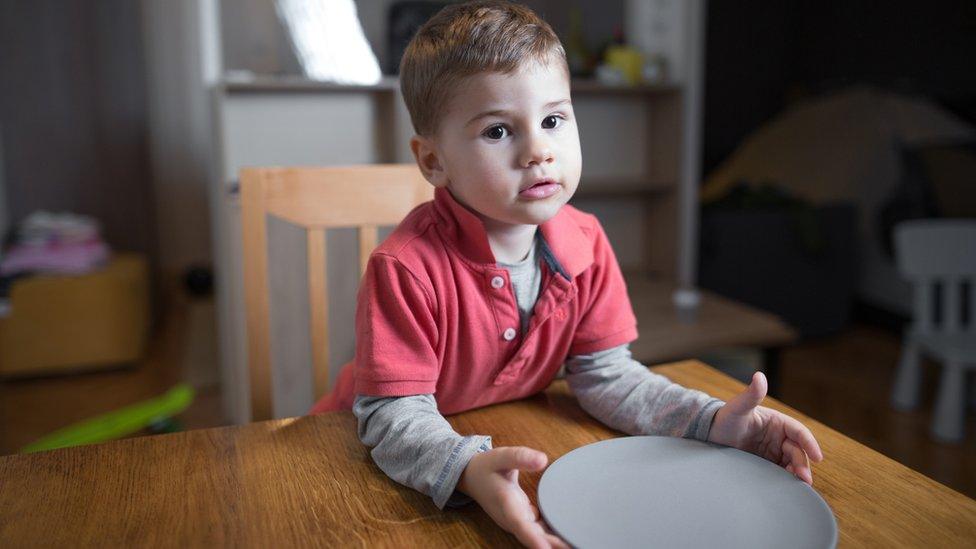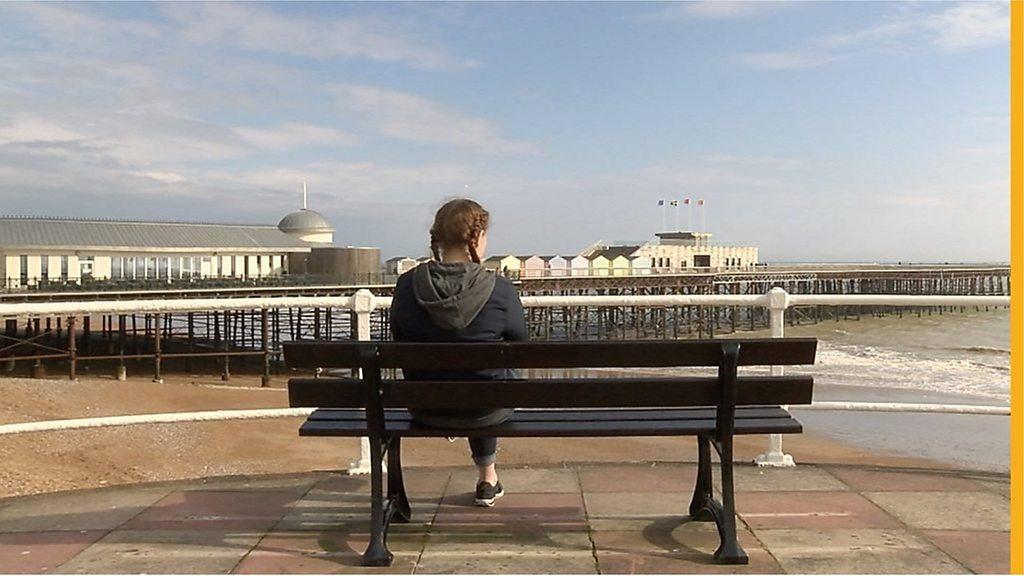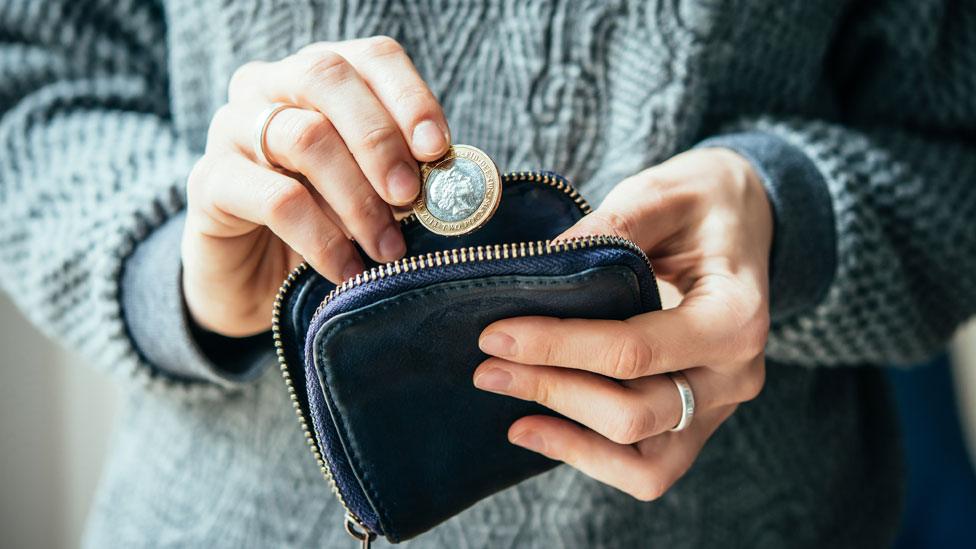Disabled people 'pulled into poverty' as benefits fall short
- Published
Sydney, who cares for her disabled mother, says the current system isn't working for her
Nearly half the 14 million people living in poverty in the UK are disabled or live with someone who is, research for a charity suggests.
The Joseph Rowntree Foundation blames the high cost of coping with disability and the struggles disabled people face in finding jobs that pay enough.
Executive director Claire Ainsley said their plight was "fundamentally wrong".
The government says it is committed to tackling poverty, spending £55bn this year on benefits for disabled people.
In its annual state-of-the-nation report, to be published on Friday, the charity urges:
reform of the benefits system
making more flexible jobs available to help people with disabilities progress out of low pay
The correlation between disability and poverty is not new but the charity's analysis demonstrates how closely connected the two are across the UK.
The charity says "shamefully high numbers" of disabled people are being pulled into poverty and the social security system is failing to protect them.
"The fact that disability continues to be an indicator of poverty shows the economy is not working for everyone," Ms Ainsley said.

The researchers found that, compared with the rest of the population, people with disabilities:
were less likely to be working
worked an average 13 fewer hours a week
lived in households that were worse off by £200 a week
And of almost 4.5 million informal adult carers in the UK, almost a quarter were living in poverty, with working-age female carers particularly at risk.
A mother's story
Single mum-of-three Jennifer Hobbs cares for both her 12-year-old son, Nathan, who has a neurodevelopmental disorder, and her elder son, Stanley, 15, who has heart problems.
It is so time-consuming that she has had to give up her cleaning job and now relies on food banks.
"It really does infuriate me," Jennifer, from Bristol, told the BBC.
"There should be more help out there for families with disabled people - not just disabled children, disabled people, because people forget disabled children turn into disabled adults.
"I think to myself, what's going to happen to my son when my son gets older if he can't work because of his disabilities.
"He might get penalised and end up on the dole or on disability benefits for the rest of his life.
"I don't want him to have to resort to food banks, like I do."

Jen Hobbs from Bristol cares for her two disabled sons
Imran Hussain, Action for Children's policy and campaigns director, said austerity and problems with universal credit left too many families like Jennifer's "fighting to keep their heads above water" and called their predicament "frankly appalling".
He urged ministers to:
provide more support to help parents with caring responsibilities find work
restore the real value of children's benefits to pre-austerity levels
Disability benefits are supposed to help people cope with the extra costs related to their conditions but research by disability equality charity Scope has shown they fall short.
Households with disabled members are also much more likely to claim other income-related benefits, which have been frozen for the past four years while prices have risen, says Scope.
James Taylor, its head of policy and campaigns, said the findings were shocking, but not surprising.
"Life costs much more for disabled people - on average £583 a month.
"At the same time, huge numbers of disabled people are denied the opportunity to get into and stay in work."
The Department for Work and Pensions said it wanted one million more disabled people to be in work by 2027 compared with 2017 and recently consulted on how businesses could best support disabled people to thrive in work.
It also plans to introduce a national strategy for disabled people.
- Published15 May 2019

- Published9 May 2019

- Published5 May 2018

- Published16 March 2017
